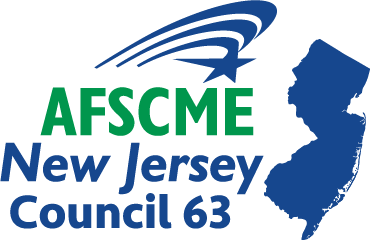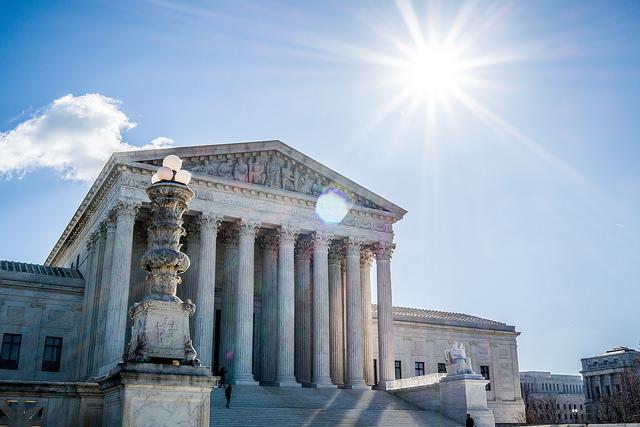AFSCME International answers your questions about the impact of the anti-worker U.S. Supreme Court ruling:
On June 27, the U.S. Supreme Court released its decision in Janus v. AFSCME Council 31, overruling Abood and holding that compulsory fair share arrangements in the public sector violate the First Amendment of the U.S. Constitution. Justice Alito wrote the majority opinion which was joined by Chief Justice Roberts and Justices Kennedy, Thomas and Gorsuch. Justice Kagan filed the primary dissent which was joined by Justices Ginsburg, Breyer and Sotomayor; Justice Sotomayor also filed a short dissent.
The holding of this case does not affect exclusive representation or payroll deduction systems. Justice Alito suggested it would be unconstitutional for a public sector employer to give union members more favorable treatment than nonmembers. The decision concludes by stating that opt-out regimes for the payment of fees by nonmembers violate the First Amendment. This means that before money can be deducted from an employee’s pay, he or she must have affirmatively authorized the deduction. The majority opinion appears to support AFSCME’s “maintenance of dues” cards, whereby a member who resigns voluntarily continues to have an amount equal to dues deducted from their paycheck. Importantly, members’ dues are not addressed in this decision.
Q: Can the Janus decision be overturned by federal or state law?
A: A majority of the Supreme Court found that mandatory agency fees are unconstitutional, as they violate the First Amendment. The U.S. Supreme Court is the final decision-maker about what the U.S. Constitution means. Only the Supreme Court can overturn its rulings.
Q: What did the Supreme Court decide in Janus?
A: The majority decision held that agency fees can no longer be withheld from the pay of nonmembers (in the states that permitted this), unless the worker affirmatively agrees to financially support the union. Membership dues were not affected by the Supreme Court’s decision.
The decision was sharply political. The five Republican-appointed members of the Supreme Court, led by Justice Alito who authored their decision, formed a majority to overturn Abood, a 40-year-old precedent that held it was constitutional for public employees represented by a union, but who are not members of the union, to be required to contribute to the cost of their representation, but not towards the union’s political or ideological expenditures. The four Democrat-appointed justices opposed overturning Abood, and in their dissent accused the majority of playing politics with the First Amendment and not applying the same constitutional principles to workers as they do to corporations.
Q: What is the effect of the Janus decision?
A: The decision imposes a so-called “right to work” regime in the public sector, which means that membership in, and payment of dues to, a union is purely voluntary, even though unions still have an obligation to bargain for and represent all persons in the collective bargaining unit, members and nonmembers alike.
Q: When is the decision effective?
A: The decision was effective immediately, June 27, 2018. Unions should not accept any more agency fees from employers, and if payments are in process and can’t be stopped, any amounts attributable to agency fee payers (as distinct from membership dues) should be returned to the employer or, if that is not possible, escrowed and returned to the fee payers.
Q: What groups does Janus apply to?
A: The decision applies to all public employees, at the state and local levels, and in all states and territories. However, its effect will be felt mostly in states and locales where unions were permitted to negotiate union security/fair share provisions that require all public employees to financially support the union’s costs of representation as a condition of employment.
Q: Does Janus affect my union membership or rights in my union?
A: No. The Janus decision applies to nonmembers: persons who have not affirmatively joined the union but otherwise benefit from the union’s collective bargaining and representation. Some bargaining unit members who have been paying fair share fees may not even be aware they are not union members. If they never signed an authorization card, they can do so now.
However, this decision may impact current members in the long run because the union busters hope that workers dropping will weaken the union. This would make it easier to cut wages, benefits and job protections as they have done in states where they control governors and state legislatures like Wisconsin, Michigan and Iowa. AFSCME members are educating and signing up non-members so this won’t happen. That’s what AFSCME Strong is all about.
Q: If our collective bargaining agreement requires the employer to deduct and remit agency fees, does that remain in effect until the contract expires?
A: No. The Janus decision invalidates that part of your contract and it no longer can be enforced. You may be able to reopen your contract to secure alternative provisions, though that is a matter that should be thought through before automatically re-opening. If the union does re-open to add new provisions in place of the invalid union security language, some topics the union may wish to include in its contract if not already there include participation in new employee orientation, regular/electronic information about personnel changes within the bargaining unit, employer agreement to enforce maintenance of dues checkoff agreements, and recognition of electronic signatures for dues authorizations and PEOPLE deductions.
Q: Does the union’s duty of fair representation still apply?
A: Yes. The duty of fair representation is a rule that requires unions to represent all persons in the collective bargaining unit, whether or not they are members of the union. For public employees, this duty is defined under state law, and may vary by degree from state to state. However, Janus makes no changes to this legal duty when it is a part of state law.
Q: Does Janus affect “exclusive representation”?
A: No. AFSCME’s status as employees’ exclusive bargaining representative was not disturbed by the Court’s decision in Janus. Exclusivity is how we stay out of a race to the bottom. When the union represents everyone in the unit, employers can’t pit worker against worker or union against union. However, anti-union organizations and some unions that represent few public-sector workers have suggested that ending exclusivity would be a relief to public sector unions. They fail to understand that if non-members can be treated differently from members the employer could give non-members a better deal in the short run to entice members out of the union. The AFSCME International Executive Board, Leadership Summit, and our partner public sector unions (AFT, NEA and SEIU) have all made a point of proactively asserting that we must defend exclusivity and not start a race to the bottom.
Q: Can unions negotiate contracts that provide different benefits or policies for members?
A: No. The Janus decision indicates it would not be permissible for a public-sector contract to discriminate against nonmembers. The duty to represent both members and non-members is tied to exclusive representation. The loss of exclusivity would allow anti-union employers to give non-members a better deal and drive down membership. However, unions may provide benefits like the AFSCME Advantage Discount programs and Free College to only members if the benefit is outside of the collective bargaining agreement.
Q: Must a union represent nonmembers in discipline grievances if they don’t support the union?
A: The answer depends on the terms of a collective bargaining agreement, state law, and may depend on whether nonmembers have a right to pursue their own grievances. In the decision, Justice Alito suggested unions could hypothetically (and without violating the U.S. Constitution), charge nonmembers for representation in disciplinary matters or refuse to represent nonmembers if they would not pay for the union’s services. However, this does not mean that state laws currently allow this result. More importantly, AFSCME does not intend to take any such advice from Justice Alito, particularly where the aim is to divide workers and undermine solidarity. AFSCME believes a strong union lifts up all workers and that we are stronger together. AFSCME’s International Executive Board, Leadership Summit and our partner unions anticipated this possibility, and oppose charging fees to nonmembers for representation, as well as refusing to provide representation services to non-members.
Q: Do Unions have to return agency fees, and if so when?
A: Agency fees received on or after June 27, 2018, should be returned, even if fees are attributable to payrolls covering work periods before June 27. Unions need not return agency fees that were received prior to the Janus decision on June 27, although that issue is currently being litigated in the courts. AFSCME’s Office of General Counsel is tracking this litigation, and we expect many suits to be filed. Please inform the AFSCME’s General Counsel’s office if you are sued or receive a threat to sue.
Q: How should unions handle agency fees from employers?
A: Unions should advise signatory employers that we no longer wish to receive agency fees. If the fees can’t be immediately stopped, the funds can either be returned to the employer for it to return them to the employees, or the funds should be placed in a separate escrow account. If you escrow fees, the affiliate must contact the affected agency fee payers to arrange for reimbursement. Note that any time the union is communicating with a nonmember, it presents an opportunity to discuss the value of joining the union.
Q: Can unions still collect dues through payroll deduction?
A: Yes. Janus does not affect dues check-off or dues deductions. The affiliate should make sure it has signed cards to support all dues checkoff requests and is using “maintenance of dues” language on cards. The AFSCME General Counsel’s office can assist with language.
Q: What if state law or the collective bargaining agreement requires a union to only certify its membership list to an employer for checkoff, rather than providing cards?
A: This is a preferred method if agreed to by the employer, but the union should still ensure that it has signed cards – or can establish electronic signatures – for all members it certifies for checkoff.
Q: Does Janus apply in the private sector?
A: No. Janus only applies to public employees.
Q: Does Janus affect unions in so-called “right-to-work” states?
A: No. Janus does not change anything in right-to-work states.
Q: Does the decision invalidate authorization cards our members have signed?
A: No. The decision only speaks about nonmember agency fees. However, our adversaries are aggressively courting public sector union members in an effort to persuade them to quit their union, including AFSCME.
For members who signed an authorization card that commits them to financially support the union for a particular period of time, the card and the obligation to support the union remain are valid. For example, cards that include “maintenance of dues” language – whereby the member agrees to pay dues “irrespective of membership in the union” for a set period of time – such authorization cards are enforceable. If you are not using this language, you should start using it now.
If a member contacts the union requesting to stop their membership or their dues deduction at a time that is outside the window established in their authorization card, the affiliate may advise the member that her request is untimely. You can use this as an opportunity to try to persuade the member to stick with the union. But each member has the individual right to decide whether to maintain her membership. If the member does not have a copy of their authorization card, you may want to provide a copy and if a copy is requested, you should provide it. In other words, you should not withhold information about the proper time for the member to stop their dues.

